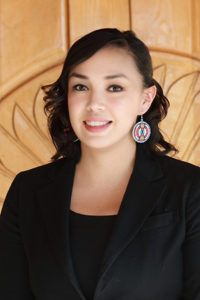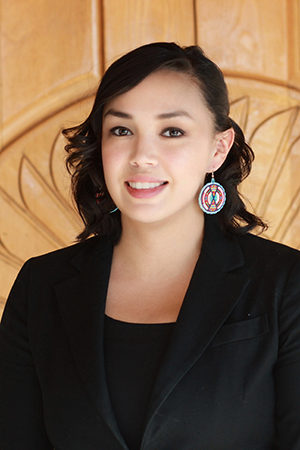According to a recent study [1] , over 80% of American Indian and Alaska Native women have experienced violence: 56% have experienced sexual violence, 49% have experienced stalking and 66% have experienced psychological aggression by an intimate partner. This rate of violence against Native women is the highest of all ethnicities.
“The rate of domestic violence on tribal lands and against tribal women is disproportionately high compared to non-tribal areas, resulting in an increased exposure to violence and its ensuing trauma, the effects of which can last generations,” said Robyn Simmons, Victim Specialist with the BIA National Victim Assistance Program in Mescalero.
Danny Breuninger, President of the Mescalero Apache Tribe, added, “Domestic violence is a huge and underreported problem on our reservation. Many women do not know where to turn, they do not know the available resources and, therefore, feel forced or trapped by staying with an abuser, endangering the health and safety of themselves and their children.”
The Mescalero Apache tribal lands are adjacent to Lincoln County where Help End Abuse for Life (HEAL) operates Lincoln County’s first and only domestic violence shelter, The Nest. HEAL has made it a priority to collaborate with local and state-wide agencies who work to serve Native survivors and families and seek to eliminate violence against Native women and children.
“HEAL has become a crucial partner that offers safe haven for victims of domestic violence and works with a large partner network on our tribal lands to coordinate resources to serve Native victims and survivors alike, including Mescalero Apache Human Service Rehabilitation Center and the Violence Against Women Programs, Mescalero Indian Health Services, Mescalero Systems of Care, and Mescalero Head Start,” said President Breuninger. “HEAL also works in conjunction with our tribal courts and probation department to assist victims of domestic violence.”
“The collaboration we experience with The Nest to provide these thorough services to our Native survivors is comprehensive and its impact in the lives of our tribal members is immeasurable,” Simmons explained. “Together we provide a protective umbrella and safety anchor for otherwise safety-compromised women and children.”

HEAL is also a member of the Coalition to Stop Violence Against Native Women (CSVANW), a group who works to provide support to advocates working in domestic violence, sexual assault, dating violence, stalking and sex trafficking in the New Mexico’s tribal communities. HEAL’s Executive Director was recently selected to serve on the board of directors for this important Coalition.
According to Widell, “We have a long history at HEAL of working very closely with our tribal partners in Mescalero and at CSVANW in serving Native women and families at The Nest. We are grateful for their leadership and guidance in helping us understand and provide culturally-relevant and sound services.”
The CSVANM has been in the news lately because of its quick response to the brutal sexual assault and murder of 11-year-old Ashlynne Mike on the Navajo Nation reservation near Shiprock Pinnacle earlier this month. They raised over $6000 in donations for Ashlynne’s family at a community gathering, prayer vigil and donation drive they held and where hundreds attended. CSVANM created the hashtag #IwillRUNforher, dedicating their run in the Shipwreck Marathon to Ashlynne and encouraged others to do the same. Over 2000 runners participated.
For further information about CSVANW, see their website at https://www.csvanw.org/.
—————–
[1] Violence Against American Indian and Alaska Native Women and Men: 2010 Findings from the National Intimate Partner and Sexual Violence Survey issued by the National Institute of Justice Research


